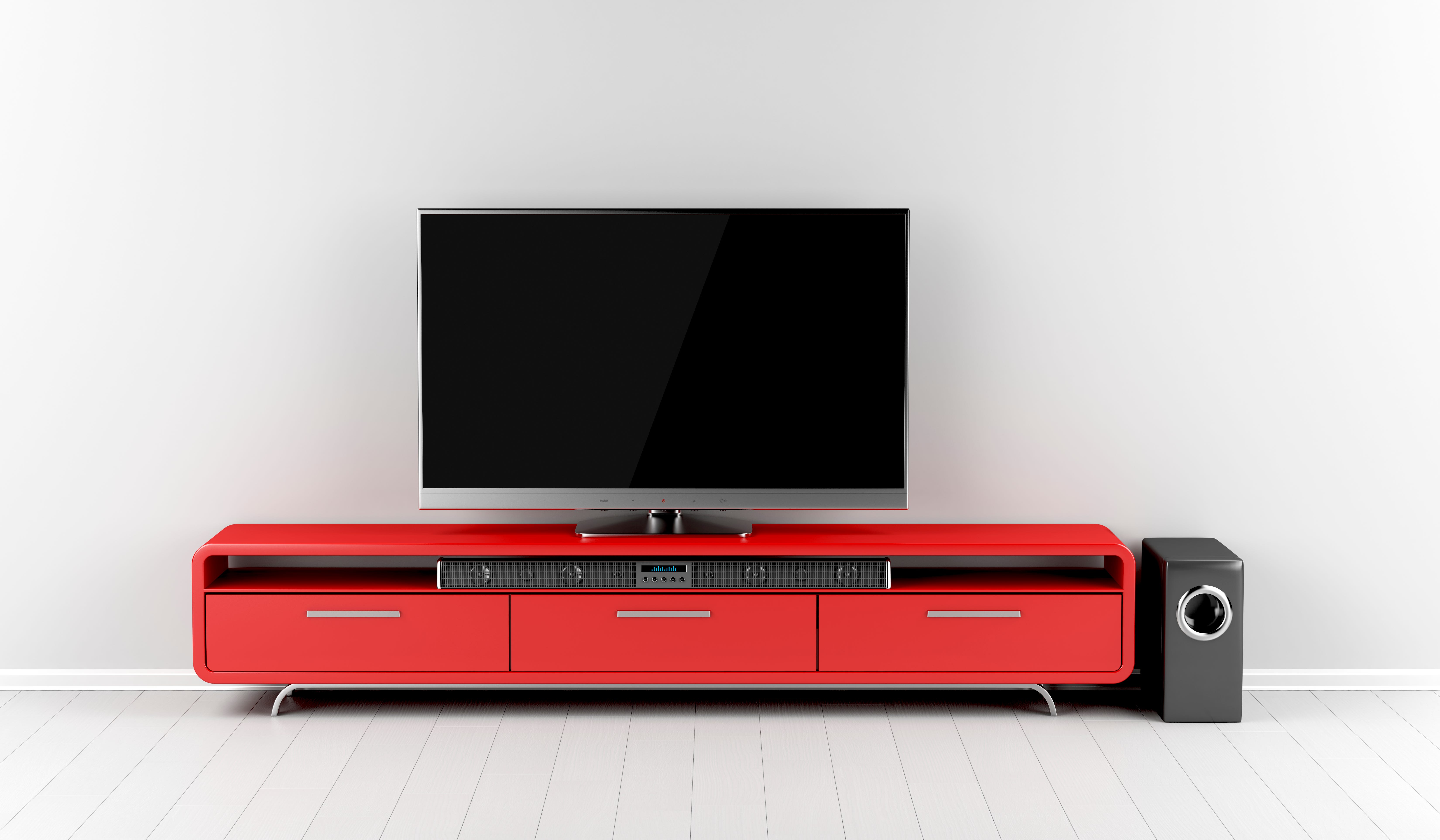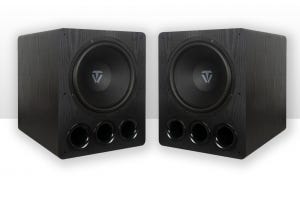
Soundbars and centre speakers are similar pieces of equipment. They both are meant to sit right under the TV in a home audio setup, producing sound from the centre of the room. So, are they interchangeable? Can you use a soundbar as a centre channel speaker in your surround sound system?
The short answer is no, a soundbar cannot replace a centre speake without compromising sound quality. These two speakers may seem similar, but have a few key differences.
The Difference Between a Soundbar and a Centre Speaker
Centre speakers only have one centre channel that plays mono sound. This means all of the audio is “placed” in the middle of the speaker, which is great for emphasizing central audio like the dialogue in a movie. Soundbars, on the other hand, will have either 2 or 3 channels, and produce stereo sound. This means they have left, right, and sometimes centre, channels. Additionally, the speakers on either side of a soundbar actually point away from each other in order to mimic home theatre surround sound. It is designed to be a more affordable substitute for a full surround speaker system.
In terms of power, centre speakers are passive; they do not have amplification abilities. This means they must be hooked up to an amplifier and receiver like the rest of a surround sound system. Most soundbars are active rather than passive, meaning they have a built-in amplifier to boost the input signal. This allows them to be plugged directly into the TV or audio source.
Why a Soundbar Can’t Replace a Centre Speaker
Technically, you can hook up your soundbar as a centre speaker, but there almost certainly will be a detriment to audio quality. There are two ways to connect a soundbar to a receiver:
- You can connect all two or three soundbar channels to the centre receiver channel. Because of the angled speakers, this method will cause the centre signal to spread around the room and blend with the left and right speakers, resulting in muddy sound quality.
- You can connect the soundbar channels to their respective left, right, and centre channels on the receiver. This will cause the left and right channel sound waves to interfere with the left and right surround speakers, resulting in a cancellation of those frequencies in some areas of the room and amplification in other areas.
In addition to these audio problems, incorrectly hooking up a soundbar to a receiver can damage your equipment. As stated before, most soundbars are active. Connecting an active soundbar to a receiver means the soundbar is receiving and amplifying an already amplified signal. This will definitely cause sound issues, and probably will damage the speakers. You can use a line-out converter to avoid double amplification, but nonetheless, an active soundbar is not designed to receive such a powerful signal, so it is generally not a good idea to do this.
At the end of the day, it would be a mistake to use a soundbar as a centre channel speaker. If you’re looking to invest in a home audio system, choose either a soundbar (and subwoofer) or a set of surround sound speakers. The former is more affordable, while the latter typically produces better sound quality. If you really prefer the sleek appearance of a soundbar compared to a centre speaker, there are a variety of models that mimic the look of a soundbar, such as the JBL Stage A135C or the Polk Signature S35.





